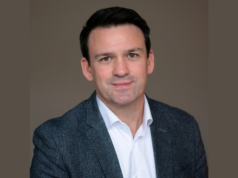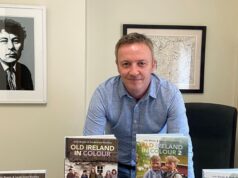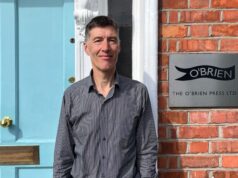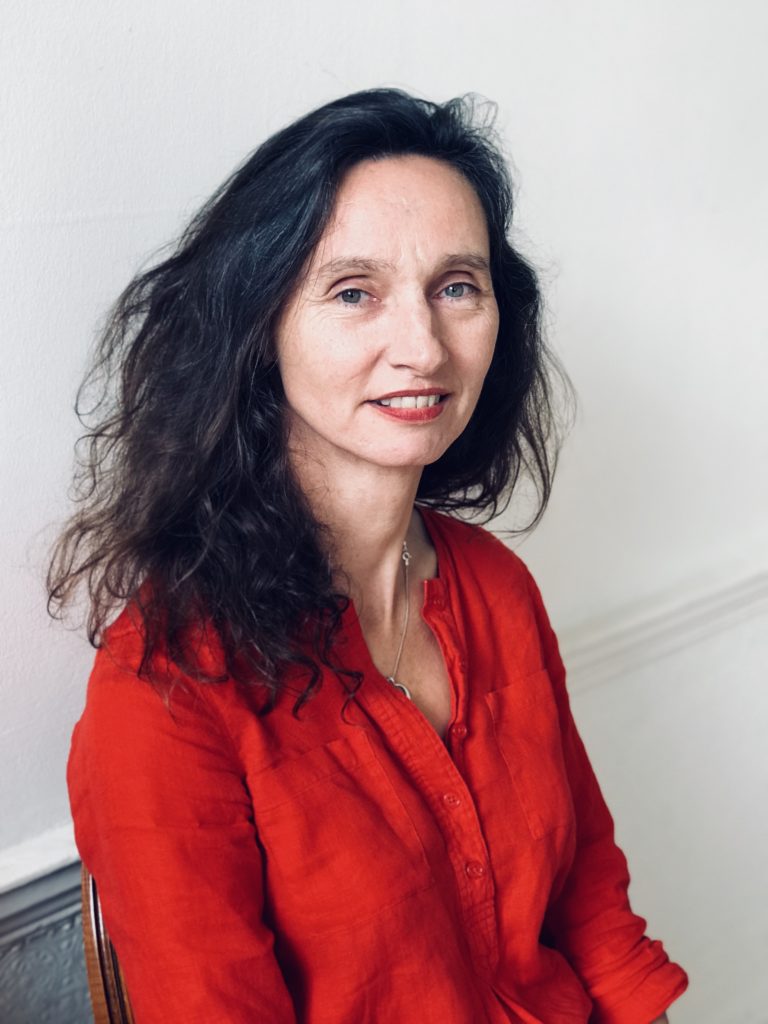
Mary McCarthy chats to Maureen Kennelly, outgoing director of Poetry Ireland
While prose marshals thoughts, poems are more about gathering impressions and feelings, and the outgoing director of Poetry Ireland Maureen Kennelly has been on a six-year mission to sprinkle this literary form into as many lives as possible.
Maureen, who has headed up the all-island resource organisation since 2013, considered one of her main responsibilities to be dispelling the notion that poetry is obscure and only for the high-brow, to show there is a version for everyone. Like prose, there is no one fixed type.
It was announced on 7 March that Maureen will take over as director of the Arts Council. A few weeks before, when she was unaware of this news, I caught up with Maureen to chat about her work with Poetry Ireland and her varied career—which led her to securing one of the most important jobs in the sector.
As with many who end up working in the arts, Maureen had early exposure and also some fortunate encounters, but, as is often the case, once you drill down into these seemingly ‘lucky’ opportunities there are different forces at play—in this case a burning interest and a willingness to take advantage of opportunities.
Maureen is very passionate about her work and is optimistic that the health of Irish poetry now is as good as it has ever been. It seems the state agency for the development of the arts in Ireland is in firm hands.
The Irish poet and writer Brendan Kennelly—any relation?
No! But he did have a big influence on me as he was from the same place in Kerry where I grew up. He lived away from Ballylongford for years but moved back to the area in recent years. As a child, seeing a poet from down the road on the Late Late Show—this made the literary world seem somewhat real, and closer to us, that it was a viable life to pursue. Because he was from our village, I was aware of, and enjoyed, Brendan’s work from a very young age—we all were. And a little exposure to the arts always encourages more. So no relation but he had a massive effect on me. And the funny thing is I actually do have a brother called Brendan!
Did you read a lot growing up?
I’m the youngest of seven and I benefited from my older siblings heading off to college and work and bringing back cultural snippets. I remember one of them gave me Seamus Heaney’s Station Island and Sylvia Plath’s Ariel when I was around fourteen and I was so taken with the beautiful and rhythmical writing—the way important things were said, but yet not said—poetry caught me. There was a mobile library that came to our village every fortnight and I would be waiting impatiently for it. I remember exactly where it was parked. My mother was a big encouragement. We lived eight miles from Listowel, which had a busy literary life, and she would take me to all of the events and made sure I knew about any writing competitions.
I feel that exposure and encouragement, at any age, is the path to develop an appreciation of the arts and this belief was at the forefront of my mind at Poetry Ireland—how could I bring poetry into people’s lives—to show it can resonate for them. We are about to completely renovate our space in Parnell Square and it is so beautiful. I believe that everyone has the right to sit in our elegant rooms with high ceilings and experience the lift that poetry read aloud can bring. It is a human right. I feel so strongly about this—that the arts are for all—everyone is entitled to cultural capital. I know what difference it can make to people’s lives.
For the renovations you raised a lot of funding. Was this tricky?
I amassed a lot of cold-calling confidence from my experience working in telesales in London and New York after I graduated in 1990, and also for a spell in Ireland when I moved back and worked for Tara Publishing. Making unsolicited sales calls is perfect training for fundraising. To not be afraid to ring people back and to be clear and upfront about what you need are handy skills to have. Working in the arts, it’s essential to be able to ask people for financial support.
For years Poetry Ireland wanted a permanent home and, after a lot of work, this happened in 2016 when we moved to a gorgeous townhouse in Parnell Square. Here, we are working alongside our partners, the Irish Heritage Trust, to develop the space and it’s incredibly exciting. The centre will include a magical Seamus Heaney Poetry Library with 3,000 of his books from his house in Sandymount generously donated by his family. We will have a bright and welcoming workshop space and café on the ground floor. Ireland has a rich poetry heritage so we expect it to be a major draw for tourists. We want people to visit us and at every opportunity we open our doors—for International Women’s Day we hosted a great event with nine female poets and singer Niamh Parsons, and there are plenty of activities planned to celebrate Poetry Day on 30 April. Expect to see gorgeous poems on buses and trains and in unexpected places all over town and all over the country.
Are women equally represented in the poetry world?
Publishers do have a responsibility to represent the many talented male and female poets we have in Ireland fairly and, without a doubt, there has been a definite history of exclusion; but I am hopeful that things are changing. The stats are getting better. But a lot of catch-up is needed; there is a backlog of unfairness. I remember growing up, almost all weekend it would be back-to-back sports coverage on the radio—practically all of it was male. This is changing and the literary world is changing. The younger generation of poets is different—unequal representation seems absurd for them. But for anyone older who remembers the structural issues of the past, such as the marriage bar, we know the barriers that existed. And we all know how much work still needs to be done.
How did you break into your career?
When I was at UCD studying Sociology and Politics all I wanted to do was to transfer to Arts in Trinity but I ended up enjoying my course and getting some insight into how Ireland and the world worked. After college, I moved to New York for a year where I really indulged my interest in literature. I was living on the Lower East Side on Ludlow Street and, even though my day job was in telesales and as a waitress in a kosher café, it was a very rich time culturally for me. I discovered singers such as Margaret O’Hara, and got to see writers like Allen Ginsberg and Lawrence Ferlinghetti—I would go to readings or to opera at the Met and pay five dollars to stand at the back.
I moved back to Ireland in the early 1990s. I started working for Tara Publishing in telesales but knew I needed to do something very different. I was selling ads for various publications, including Lifetime ,which was owned by The Irish Times. As a result I heard about the book sales that The Irish Times would run and I remember going to buy as many as I could carry. John Banville, who was the literary editor at the time, would be on the desk selling off the review copies and I was very tickled by that. At this stage I was writing a bit—poems and some journalism. I knew this was where my interest lay and I was starting to think realistically how I could get into this world.
I then had a lucky encounter with Ken Monaghan, who had co-founded the James Joyce Centre on North Great Georges Street. He was also James Joyce’s nephew. I ended up volunteering there every weekend for a year. Ken ran the splendid cultural institute so well and he taught me so much. He was a brilliant mentor.
I was accepted to the Arts Administration course at UCG (as it was then). This was a very positive environment for me as I knew this was the career I wanted and I enjoyed learning with the thirteen like-minded souls doing the course. Following graduation, I had another lucky break when a short internship with Druid Theatre ended up turning into a year’s work. Jane Daly was then general manager and she was another brilliant mentor. I observed Garry Hynes at work—her exacting standards—and I soaked it all up.
I went on to a varied career working for the Cat Laughs comedy festival in Kilkenny for a short time, followed by a wonderful few years working with Fishamble Theatre Company and Jim Culleton. There, our focus was on bringing new writing to the stage.
I later moved back to Kilkenny and was director of the arts festival there for four years from 1998 to 2002. I loved it—the beautiful medieval streets, the community of artists living around. There was a really visionary board and I got to flex my programming muscle in earnest. I wanted the festival to not be seen as stuffy or elitist—this has always been my aim in all the positions that I’ve held.
Festivals are high-octane affairs—you work for months and then get your one chance in those ten days to be a success or a failure. I was the programme director of Cúirt when the Icelandic ash cloud happened in 2010. Many of our writers could not travel as a result. It was all systems go and the contacts book came out. Everyone came forward to help—Anne Enright, Roddy Doyle, Pat Boran—it was so nice to feel so supported.
What writers are in your bedside tower of books?
I will dip in and out and change them around all the time—there are so many poets I love to read. The Irish poets that are currently sitting there include Colette Bryce, Vona Groarke, Paula Meehan, Nick Laird, Martina Evans, Paul Muldoon and John Mc Auliffe. On the international front there is Tracy K. Smith, Don Paterson, Michael Ondaatje, Denise Riley and Philip Schultz. One of the perks of what I do is the interesting people I meet, and Phillip became a firm friend since we met at the Cúirt festival in 2009. He even read a poem of his when I got married in New York. I had a tiny wedding—I did not want a huge affair and, having such a large family, it was inevitable, so I escaped abroad.
How does Poetry Ireland encourage poetry for all?
Since May 2018 we have been implementing our diversity strategy and we are working hard to make sure that we widen the diversity of voices, in terms of poets, participants and audience. We live in a country that is changing rapidly and we have to make sure that our literature reflects that change. The Instagram poetry movement has made it easier to get younger people involved. They really appreciate a poem can say what they want to express. Education is a really important part of our work and we arrange a lot of school visits for writers and run activities that link in with the syllabus.
Spoken-word poetry has really taken off in the new Irish communities and it is powerful stuff. We run many live events open to the public because you really have to hear poetry aloud to fully appreciate it. It is not only the meaning of the words but half of it is how they sound.
Our first poet-in-residence, Catherine Ann Cullen, runs a weekly project with ex-prisoners, mostly men. This has been a runaway success—the group loves it—it’s a brilliant example of the transformative power of the arts. The participants feel completely at home with us in Parnell Street. For us, that tangible effect of a community being able to express themselves, where they may not have been given the chance before, is so exciting. Another group with whom we work is Saol, run by the poet Rachael Hegarty, which is based in Dublin city centre in Amiens Street. This is for women affected by poverty and addiction issues and it has been another great success. The freedom that writing poetry can bring, that sense of aliveness, is exactly what we set out to do.
How healthy is our poetry scene now?
I think that we have a very supportive community in Ireland; it is not a clique. I am not being Pollyanna here—I know it can seem so at times, but I honestly believe we are welcoming and trying to be more open to newcomers than in the past. Poetry Ireland does a lot to try and help up-and-coming poets and the Irish Writers Centre is also a great resource. There is a lot of activity and poetry competitions attract enormous entries and are very often a good way for people to become known for their work.
I am extremely excited by the young talent that we have right now. Take for example this quartet of writers in their 20s – Sally Rooney, Ian Maleney, Nidhi Zak and Stephen Sexton – they are remarkably assured. We do a lot of work with Stephen and were delighted to launch his first book in Poetry Ireland last year. A few years back, Sally actually worked part-time with us in Poetry Ireland and was with us when Faber offered her a contract. She was incredibly self-effacing and just got on with her work.
***
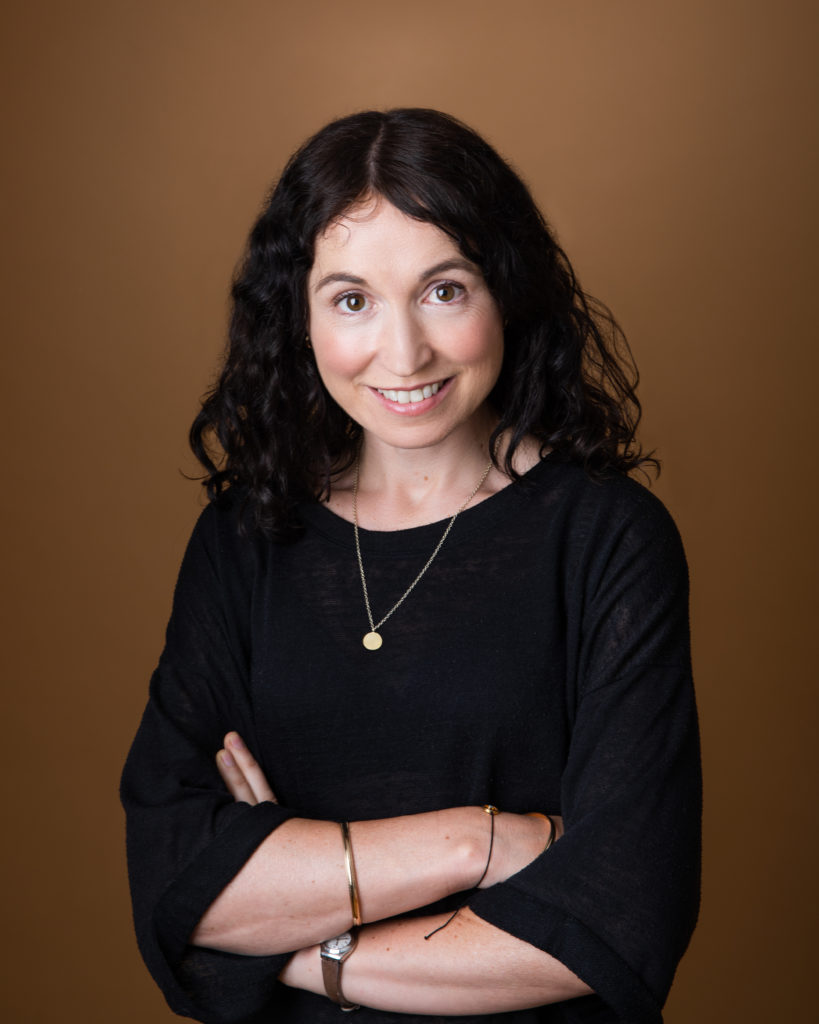
Mary McCarthy is a freelance journalist writing for a number of publications. She is an avid reader and an iron-willed book club administrator. @maryknowsbees








